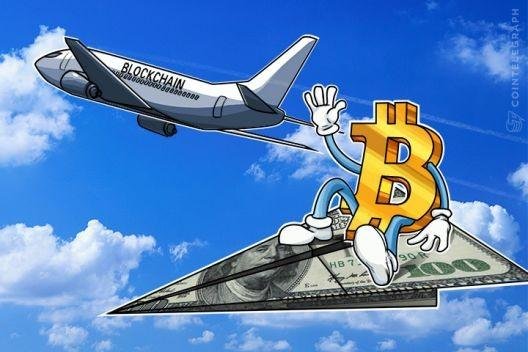From Flying Money to Blockchain: How Remittance Industry Has Reached Turning Point

From the simple barter system of ages past to the sophisticated technological systems of modern day money transfer, the remittance industry remains a significant aspect of the global economic ecosystem.
One of the primary characteristics that qualify a good medium of exchange is transportability. This involves how effective it is to transfer money from a given location to another.
Over the years, as money and its associated technologies have evolved, so have the systems by which they are transferred.
Emerging technologies have gradually but steadily opened up new ways for financial services to reach previously unreachable populations of the world.
From ‘flying money’ to wire transfers
During the early years of the remittance industry, popular among the Chinese was a system where traveling traders would safeguard themselves against robbery by offering paper vouchers to merchants. This was described as the ‘flying money’ system.
As time passed, the remittance industry continued to evolve as more systems were introduced to improve the convenience of money transfer regarding cost and speed and security.
One of the most popular means of money transfer in the present day system is ‘wire transfer,’ an electronic transfer of money that goes from one bank or credit union to another using a network such as SWIFT or Fedwire.
Wire transfers are being backed by banks and other traditional financial institutions. Global coverage, speed and security of transfer are some of the qualities that attract individuals and institutions around the world to this system of remittance. However, emerging technologies are disrupting these existing systems at a speedy rate.
Disruption
Launched in Kenya in 2007, M-Pesa is a remittance company that allows users to deposit, withdraw, transfer money and pays for goods and services easily with a mobile device.
The service lets users deposit money into an account stored on their cell phones, to send balances using PIN-secured SMS text messages to other users, including sellers of goods and services, and to redeem deposits for regular money.
However, the advent of the Blockchain seems to have taken the remittance industry to awhole new level.
Blockchain-based companies take advantage of the P2P network of Blockchain to enable quick, secure and cheap transfer of money between parties across the globe.
The impact being created by these Blockchain companies seem to be reverberating across the entire global financial ecosystem.
Cost killers
A number of remittance companies within the Blockchain ecosystem are currently serving individuals and businesses across the globe.
Bitpesa offers Bitcoin-oriented mobile payments to various African countries. As of right now, the service is active in Nigeria, Tanzania and Uganda, with claims of future expansion. BitPesa also maintains to cover over 85 countries around the world and has processed over 17,000 Bitcoin transactions so far.
Bitspark offers to cash out services at over 100,000 locations around the world and prides itself upon servicing the Asian regions, with a strong focus on Indonesia, Pakistan, Vietnam and the Philippines.
Everex focuses on offering Blockchain-based microlending, remittances and merchant payments to underserved individuals and SMEs in Asia and globally.
Taking advantage of the relatively low-cost implication, Cryptopay claims to have launched their app for iOS aiming to make top-notch financial technologies affordable and convenient.
Cryptopay contends that its use of Bitcoin network enables far cheaper transactions when compared to conventional banks that operate using fiat.
Kovalenko explains:
“To send a £1000 through the Barclay's to a non-EEA country, the total will be £1040 + receiver fee, not mentioning £20 they charge for tracking the payment. There's also a good chance to pay the additional £7 fee in case of Barclay's for the mistake in paperwork. A trans-Atlantic transaction took almost a week and required the receiver to visit the bank branch to prove his identity. The same payment in BTC with Cryptopay results in 0.0005 BTC (£0.89) fee and would be delivered in an hour or three.”
There are numerous Blockchains remittance companies offering various services across the globe, yet the industry seems full of hugely untapped potential.
Apparently, total disruption of the remittance industry using Blockchain technology may only be a matter of time.